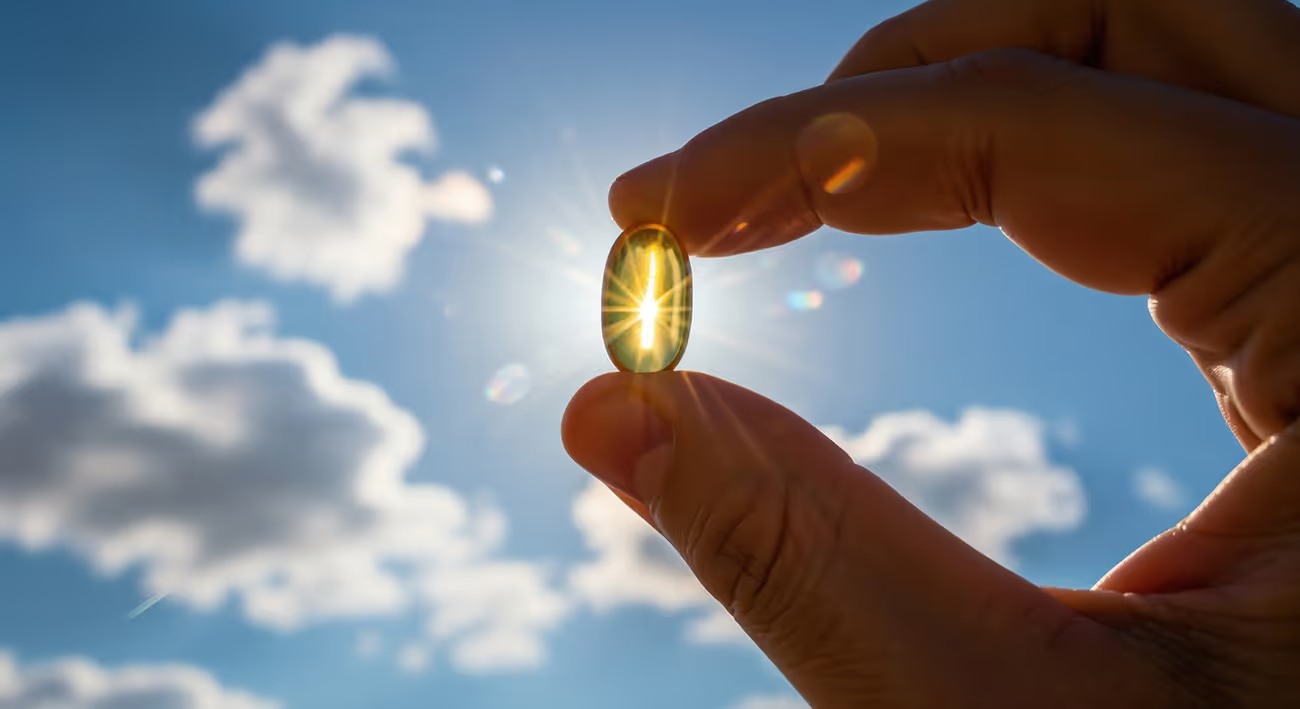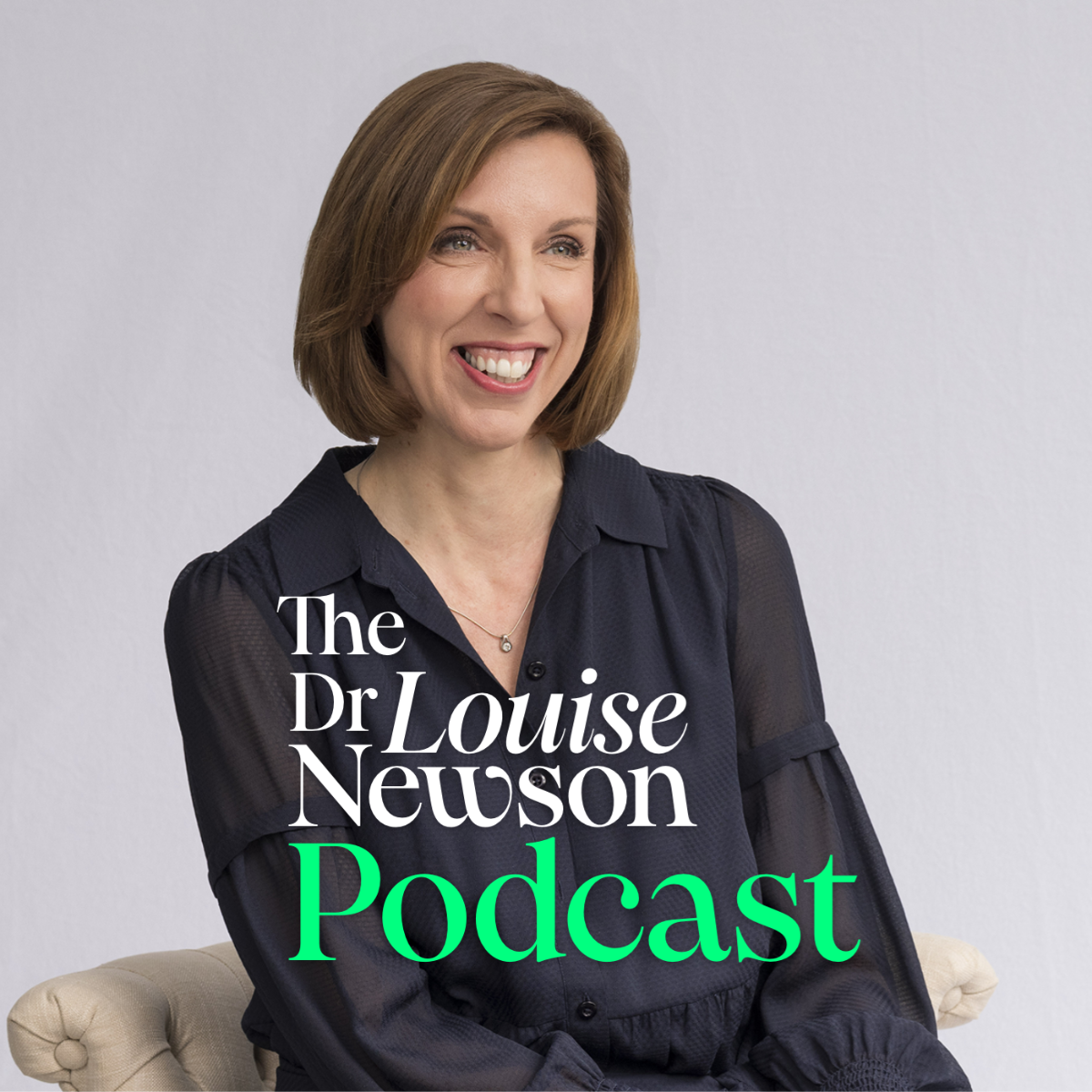Vitamin D: supporting mood, bones, immunity and muscle function during menopause
- Vitamin D plays a role in your mood, immunity and bone health
- Known as the sunshine vitamin, it can be difficult to obtain adequate vitamin D from sun exposure alone
- Advice on choosing a vitamin D supplement
Vitamin D is a critical nutrient, affecting multiple aspects of your health, including mood, immunity, bone health and muscle function. It works at a cellular level: every cell in your body has Vitamin D receptors, which highlights how just widespread its impact is.
But why is vitamin D important for general health, and during times of hormonal change like perimenopause and menopause?
This guide sets out what you need to know.
Why is vitamin D important for my health and wellbeing?
Low levels of vitamin D are linked to issues like depression, low mood, muscle pain, weakened bones, and a vulnerable immune system – all of which can intensify during perimenopause and menopause.
Many researchers believe that vitamin D is vital to healthy brain function, and studies suggest it might play an important role in regulating mood and warding off anxiety and depression [1]. Vitamin D may also help to regulate insulin levels, and research has found that people with low vitamin D levels have a higher risk of developing type 2 diabetes, as well as other chronic inflammatory diseases such as heart disease, osteoporosis and some types of cancer [2].
Vitamin D, bone health and menopause: what’s the connection?
One important benefit on your bones of vitamin D3 is that helps your body absorb and use calcium: calcium gives your bones the strength and hardness they need to keep strong and healthy.
This is key as women are more affected by a loss of bone strength during perimenopause and menopause, when levels of estradiol – the most beneficial form of estrogen – progesterone and testosterone decline.
These are key hormones for protecting and maintaining bone density: when hormone levels are low, your bone is breaking down at a faster rate than your body can grow new bone tissue, which increases the risk of osteoporosis and fractures.
RELATED: Hormones and bone health (video)
Vitamin D: how much should I be getting?
There are three ways to get vitamin D: through your diet, through exposure to the sun and via a supplement.
The best dietary sources of vitamin D are oily fish such as salmon, sardines, herring and mackerel, red meat, liver, egg yolks and fortified foods (such spreads and breakfast cereals). If you’re vegan, there are also plant-based milks and yoghurts and some orange juices that are fortified with vitamin D.
RELATED: Can the Mediterranean diet help menopausal symptoms?
However, dietary sources don’t generally provide adequate amounts, and a more effective way for your body to produce vitamin D is by exposing your skin to the sun.
This is because vitamin D works in a different way from other vitamins: It is more similar to a hormone and is naturally produced in the body from cholesterol when your skin is exposed to the sun. Hence, it’s often referred to as the ‘sunshine vitamin’.
To have enough vitamin D from the sunlight, you have to stand in the midday sun for at least 30 minutes for at least three days a week regularly – this is quite hard to achieve!
UK government guidelines recommend that everyone takes 10mcg of a vitamin D supplement daily in the autumn and winter months [3]. However, vitamin D needs can vary significantly based on factors such as genetics, ethnicity, lifestyle, and geographic location. If you wear clothing that covers your skin fully (say, for cultural or religious reasons), you may also be at risk of not getting enough sun exposure for vitamin D synthesis.
In the UK and many other countries, achieving adequate Vitamin D levels through sun exposure alone is challenging, especially during the winter months when sunlight is limited. This makes supplementation very beneficial for many.
RELATED: B vitamins, menopause and hormone health
Choosing a vitamin D supplement
With endless options, conflicting advice, and bold claims, choosing supplements can at times feel overwhelming.
Most vitamins and minerals are available in powder, capsule, tablet and liquid form. All have their merits, and which form you opt for usually comes down to personal preference: for example, if find tablets harder to swallow, you may prefer a liquid supplement.
Vitamins and minerals work in synergy in the body, so multi-nutrient supplements often provide a convenient, cost-effective option, as they combine essential nutrients that enhance absorption and effectiveness. However, make sure the nutrient list isn’t overly long, as this can dilute dosages.
RELATED: Magnesium and hormone health
Here are some tips on choosing a high-quality supplement:
- Transparency: reputable brands clearly list all ingredients, including active vitamins, minerals, and any fillers or binders
- Additives: all food supplements contain additives to preserve their integrity as well as to protect their activity and potency, but you should try to avoid artificial colours and flavours
- Bioavailability (how easy it for the body to absorb and utilise the nutrients): certain forms of vitamins and minerals are more easily absorbed than others, such as vitamin D3 compared to D2
- Check for clinical dosage levels: always check the packaging
- Brand reputation: check the reviews and take some time to read about who they are and where they source their ingredients
- Beware of outlandish claims: anything claiming ‘a miracle cure’ or ‘guaranteed results’ should be viewed with caution.
It’s also important to remember that while supplements can offer benefits, they aren’t a replacement for a nutrient-rich diet. For the best results, combine a healthy, balanced diet with carefully chosen, targeted supplements.
RELATED: Omega-3,menopause and hormone health
For optimal support, it is often recommended to pair Vitamin D3 with Vitamin K2. Vitamin K2 directs calcium to your bones, preventing it from building up in your arteries, helping to maintain healthy blood flow and supporting your overall cardiovascular health.
When it comes to vitamin D, established brands include:
- Bionutri Fish Oil DHA 5:1 EPA with vitamin D3
- Nutri Advanced D3 and K2 drops
- Bare Biology D3 and K2 spray
- Allergy Research vitamin D3 complete tablets
- Biocare vegan D3 and K2 drops.
Dr Louise Newson is a GP and Menopause Specialist. Dr Jo Sewell is a GP and Menopause Specialist. Joanna Lyall is a registered Nutritional Therapist with a practice in women’s health and menopause. She is a co-founder and Head of Nutrition at The Better Menopause.
All information given in this article is designed for general usage, and does not replace a conversation with your own medical or health practitioner. Supplements should never replace a healthy, balanced diet.
-















